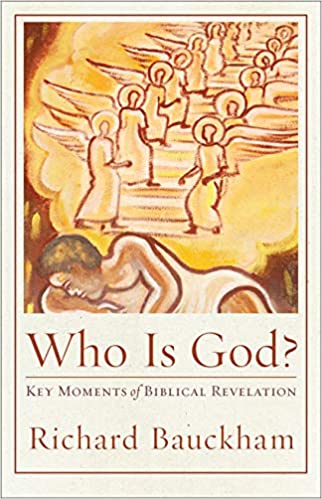BEN: Why was it that by the time of Jesus, or a bit before, Jews were avoiding pronouncing YHWH, the divine name, but rather were using circumlocutions, even using other divine terms like LORD. Help us understand this reticence. Is it because of the holiness of God, and out of respect for that? Some Christian theologians have suggested that by the time of Jesus, God’s people felt God was distant, after all they had endured exile, and that Jesus’s offering of a relationship with one called ABBA was meant to reinstitute an intimate relationship with God, overcoming the estrangement. Does this strike you as overly Christianizing the historical data, or in some sense correct?
RICHARD: The reticence about the Name actually goes back to some of the later books of the Hebrew Bible, such as Ezra-Nehemiah and the so-called Elohistic psalms. I think the key point that is often missed is that they didn’t leave the Name aside. They continued to refer to it, but they referred to it by using recognized substitutes. So they didn’t stop, in prayer, “calling on the Name of the LORD”; they addressed God by referring to his Name rather than pronouncing it. What became a recognized prohibition was specifically on speaking the Name aloud. There was never a prohibition on writing the Name, and in some manuscripts of the Septuagint the Name is actually written in Hebrew characters within the Greek text. Some scribes (as at Qumran) avoided writing the Name as a precaution against readers speaking it (most people spoke aloud even when reading alone), but the real concern was with pronouncing the Name. The reason for this concern I think must have something to do with obeying the second commandment of
the Ten (“you shall not make wrongful use of the Name of the LORD your God”). If the Name was pronounced, for example, it would become known to Gentiles who would use it in magic (as in fact did happen), but it would also be easy for Jews to make careless and profane use of the Name (much as modern Western people do all the time with “God” and even “Jesus” and “Christ”). But the practice produced, it seems to me, a remarkably effective way of marking out the divine Name as unique, utterly unlike any other name. It was a Name that was never pronounced, a Name that gave God’s covenant people the means of personal address to him, but in a way that signified his own uniqueness and incomparability, since one addressed him by referring to his Name but not speaking it.
I don’t see any reason to think that Jews in the Second Temple period commonly thought of God as distant. Note that, in the Psalms and in Lamentations, people who feel God had deserted them in the sense of not coming to their aid, do not hesitate to call on him by his Name. The psalms that express intimacy with God were, in many cases, written after the exile, and they were all included in the hymn book of the Second Temple and sung in Temple worship.













